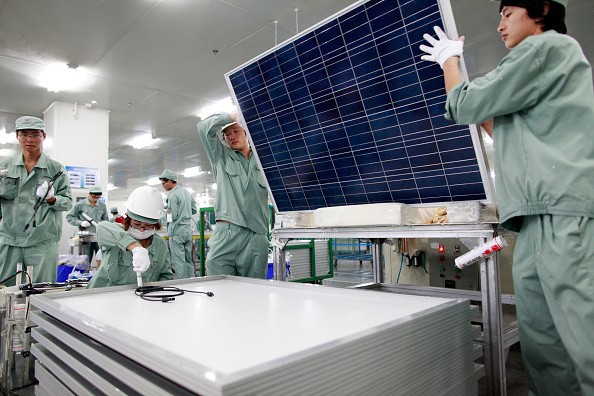A plan to extend the import duties on Chinese solar panels to 18 months has been proposed by the European Commission, a period that was shorter than earlier planned, and which also includes a gradual phase-out, Reuters reported.
Commission Vice-President Frans Timmermans made the announcement during a news conference on Wednesday, Feb. 8, the report said.
The announcement came as anti-dumping and anti-subsidy duties have been imposed on Chinese solar panels and cells since 2013. A decision on whether the imposition must be maintained is currently in review. Last month, several EU countries blocked a proposal for a two-year extension.
Timmermans said during the news briefing that the EU's member states will decide on the Commission's proposal later this month.
"The phase-out is also meant to make sure that producers of solar panels in the European Union have the time to adapt to the new situation. The precise conditions are something that will be up for debate, also with member states now," Timmermans added.
The Commission is trying to take into consideration the interests of both EU manufacturers and those who benefit from cheap imports, as well as the sentiment of China, which is seen as the region's ally against protectionism and climate change.
In 2013, a trade war between the EU and China almost ensued after EU accused Chinese solar panel exporters of dumping.
To prevent hostilities, the two sides have agreed to have limited tariff-free imports of panels at a minimum price of 0.56 euros per watt and for those outside the agreement, anti-dumping duties of up to 64.9 percent and anti-subsidy duties at 11.5 percent will be imposed.
According to EU ProSun, a group of manufacturers including Germany's SolarWorld, the measures enabled EU producers to invest and allowed the market to develop.
Meanwhile, Luc Triangle, general secretary of trade union federation industriAll Europe, said that it would set a dangerous precedent if the EU would limit the extension.
On the other hand, SolarPower Europe, which represents those opposed to duties, said that they look at reducing the extension period positively but urge that cells should be excluded. They also said that the EU has to determine what the gradual phase-out means.
The hearing of the case is set for March 3, the report said.



























